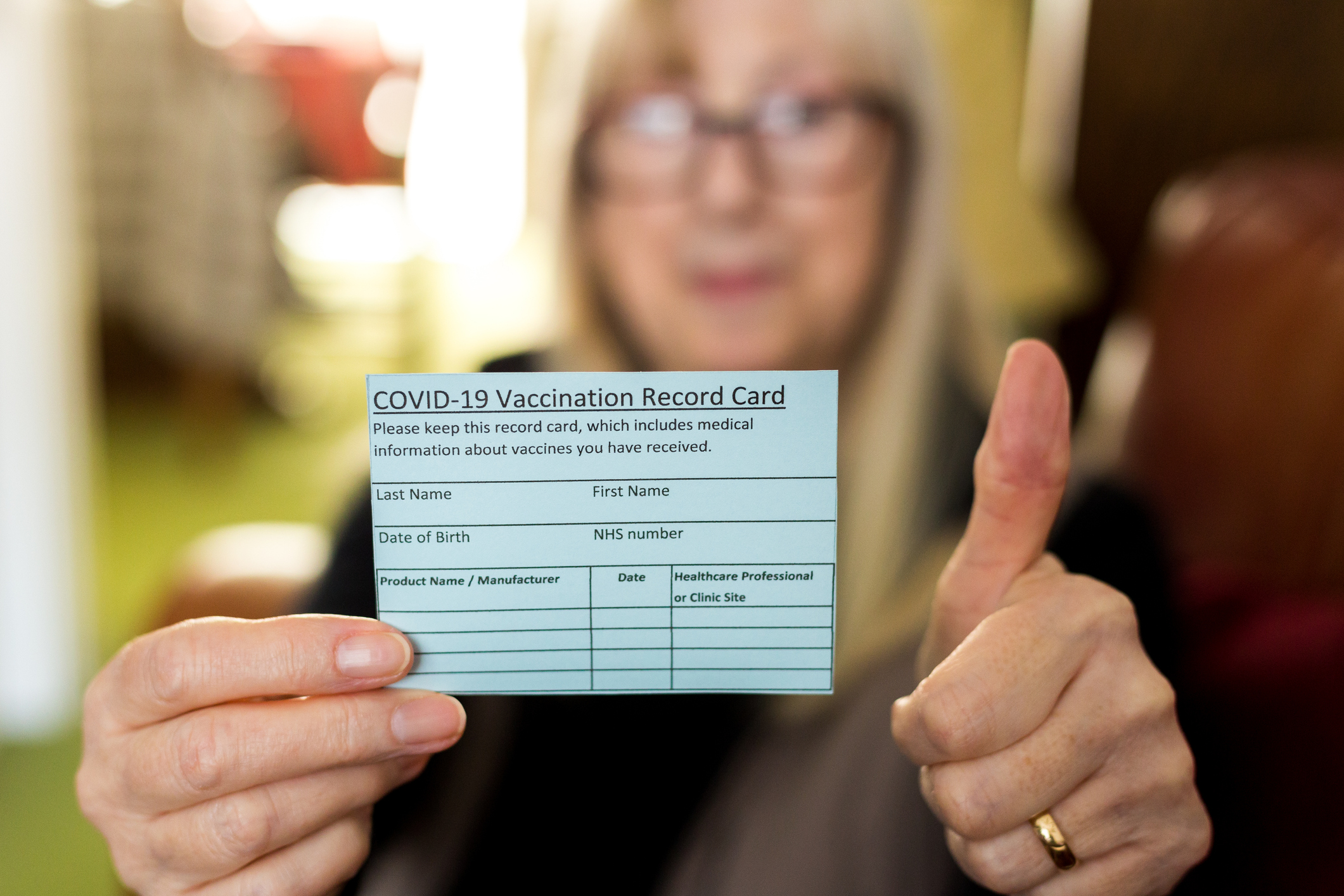Written by: Alan S. Kliger, M.D., Clinical Professor of Medicine, Yale School of Medicine, and Co-Chair, American Society of Nephrology (ASN) COVID-19 Response Team.
COVID-19 continues to be a dangerous infection for dialysis patients. Here are some facts every patient should know:
- Why should I get vaccinated now if I’ve been waiting so far? The vaccines clearly protect dialysis patients, particularly by greatly reducing hospitalizations, complications and death from COVID-19 infection. If you’ve been waiting to see if the vaccine is safe, there have now been hundreds of millions of people vaccinated, with almost no severe complications from the vaccine. Did you get vaccinated for measles? Mumps? DPT? The COVID vaccines may be the safest vaccine ever invented. Are there any long-term complications of the vaccine? None that have been seen in the past 10 months, and no reason to think there could be longer term complications. So… the risk of vaccination is very small, and the benefit to protect your life and health are large – – get vaccinated now!!
- If I received the vaccine, how well am I protected from infection and its complications? People are much less likely to get COVID-19 after they’ve been fully vaccinated. Importantly, even if a vaccinated person catches COVID-19, the infection will likely have no symptoms at all, or only mild cold-like symptoms. Vaccinated dialysis patients who do catch the infection rarely become sick enough to require hospitalization, and it is extremely rare for vaccinated dialysis patients to have life-threatening complications. The vaccine is highly successful in protecting against serious or life-threatening illness.
- Does the vaccine protect dialysis patients as well as people without kidney disease? Protection from infection can be measured by the antibody level we develop – – following vaccination, or actual infection with COVID-19. We also develop T-cell and memory B cell immunity. When antibody levels are measured after vaccines are given, the level of antibodies for most dialysis patients are very similar to levels in the general population. Post-vaccination levels are lower in kidney transplant patients, patients taking medicines that reduce the body’s immune response such as chemotherapy for cancer, and are lower in some patients with conditions that reduce the body’s immune response. So… for most dialysis patients, the vaccine is highly protective. For patients with impaired immune systems, or taking medicines that reduce the immune response, the vaccine may be less protective.
- How well does a 3rd dose of an mRNA vaccine (like Pfizer or Moderna vaccines) work? Studies have shown that a 3rd vaccine dose may increase antibody levels 10 – 20 fold. That’s a huge step-up in protective antibodies. Who needs these higher antibody levels? There are 2 group of people who may benefit. First, people with impaired immune systems, who produced lower antibody levels after standard vaccination than the general population. For these people a third dose increases greatly the likelihood that they develop levels of antibodies that protect against infection. For these people, a third dose gets them “fully vaccinated.” Second, there are fully vaccinated people whose antibodies decline with time. This tests the “durability” of vaccination protection. Studies have shown that for some people, antibody levels fall in the months following vaccination. For these people, when antibody levels fall below the level that protects against infection, a “booster” dose raises antibody levels to high level once again. While it may not be feasible to measure antibody levels in the whole population every few months, the general levels of antibody decay can be used to determine the most likely time that most of us would require a “booster.”
- What about the Johnson and Johnson Single Dose “Vector” Vaccine? The same general considerations discussed above apply to the “vector” vaccines; however studies are now underway to determine the safety and efficacy of a 3rd or booster dose of these vaccines. Some as yet unpublished observations show that antibody response among dialysis patients after the Johnson and Johnson vaccines may be less than after the mRNA vaccines (Pfizer and Moderna). The durability of Johnson and Johnson vaccine protection is being studied now.
- What are the facts for the Delta Variant of COVID-19? The delta variant is now the dominant strain of virus in the US. Here are some facts about this variant:
-
- It is highly contagious – – more efficient and easily transmitted. The delta strain is nearly twice as transmissible as the original Wuhan strain of COVID-19. One study reported that viral loads in Delta infections were about 1,000 times higher than those in infections caused by other variants.
- Are the symptoms of Delta any different than other strains? The symptoms of infection with Delta are similar to symptoms of other strains. Fever, headache, sore throat, runny nose are common, while cough and loss of smell are not. Some Delta patients have more serious symptoms, including hearing impairment, severe gastrointestinal symptoms and blood clots and their complications.
- Delta variant affects unvaccinated people more. Vaccines prevent hospitalization and death from Delta. One study reported an 88% efficacy against Delta after 2 doses of mRNA vaccine, but only 30.7% efficacy after 1 dose.
- Delta variant infections cause more hospitalizations. Recent studies from Scotland and England show the likelihood of hospitalization after COVID-19 infection was twice as high with the Delta variant than with the original alpha variant.
As I look at these facts, I conclude:
- If you have not yet been vaccinated, get vaccinated now. Vaccines are safe, highly effective and may save your life.
- If you have an impaired immune system – because of medical conditions beyond kidney disease, chemotherapy, cancer or other conditions or medications, speak with your doctor about receiving an additional shot of vaccine.
- The pandemic continues – so wear a mask when you are with groups of people indoors, socially distance from non-household contacts and continue hand hygiene.
- As the pandemic continues, and facts on the ground continue to evolve, continue to follow the advice of reputable sources, such as the CDC, state and local health authorities, and your health care team.
- Stay safe! While it sometimes seems that this pandemic is endless, vaccination worldwide, mitigation efforts like masking and social distancing will reduce infection spread, which in turn will reduce viral mutation and the evolution of new and more dangerous strains.




